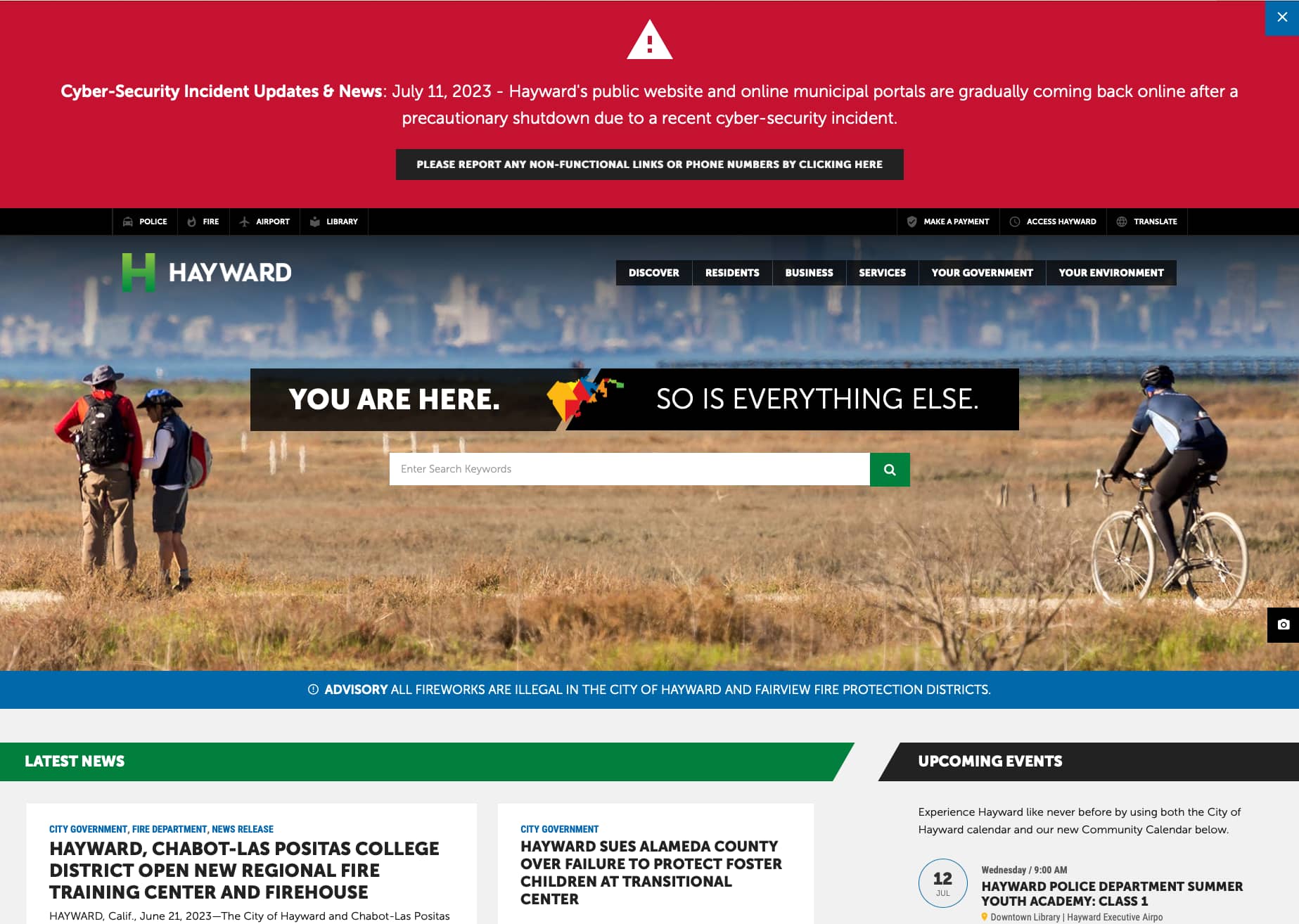Local Emergency Declared in City of Hayward
After Ransomware Attack
Hayward recently experienced a ransomware attack that impacted several computer systems. As a precautionary measure, the city decided to temporarily shut down its websites, although they were not directly affected. Fortunately, the websites are now up and running again, but with a warning for visitors.
During a ransomware attack, files are encrypted, rendering them and the systems unusable. The attackers demand a ransom to decrypt the files and release control over the affected systems. The main objective of this cyber attack was to disrupt and hold hostage in various parts of the city’s networks and computer systems.
City officials have stated that, to the best of their knowledge, no sensitive data belonging to employees or residents has been compromised. While the city is actively working on restoring its systems, they want to reassure the public and emphasize the importance of remaining calm. It’s important to remember that no security system is completely impervious, but being prepared is always a wise approach.
Furthermore, there is currently no evidence to suggest that any private personal or confidential information, whether pertaining to employees, community members, or the public, has been breached or stolen.
Other California Cities Were Also Attacked with Ransomware
Earlier this year, Oakland experienced a ransomware attack that was so severe it prompted the city to declare an emergency. The hackers targeted the city’s information technology infrastructure and demanded a ransom, although Oakland did not give in to their demands.
Unfortunately, as a result of the attack, approximately 610 gigabytes of data were leaked onto the dark web. The breach led to the filing of four legal claims and one class action lawsuit against Oakland, as the personal information of employees had been exposed.
Typically, law enforcement agencies like the FBI advise against paying ransomware to hackers. However, in cases where a city’s operations are severely disrupted or the stolen data holds significant value, some cities may choose to make the payment.
Interestingly, in similar instances, other victims, including organizations and government offices, have indeed paid substantial amounts to regain access to their files and systems. When they fell into a ransomware attack, San Bernardino County engaged in negotiations with the responsible party and their insurance carrier, ultimately reaching an agreement that involved making a payment. This allowed them to restore their system’s functionality while also ensuring the secured data from the breach.
Are you a potential target of a ransomware attack?
According to Verizon, 94% of malware is delivered via email. One of the most common forms of email attacks is phishing, and it has proven to be quite effective in compromising business networks and devices.
When it comes to the specific data being targeted, initially, attackers may go after low-level data during the early stages of an attack. However, their ultimate goal is usually to steal more sensitive information, and that plays a significant role in determining who they target.
For example, hackers might pretend to be job seekers and send emails and attachments to HR personnel, hoping that someone will open them. Once opened, the ransomware can spread, and the attackers gain access to confidential and sensitive company data. It’s a sneaky tactic, but unfortunately, it happens.
If you find yourself in a position where you’re targeted or want to prevent such incidents from happening to you, it’s a good idea to also strengthen your personal email security. One of the essential layers of protection is a reliable spam filter that can weed out most of the malicious emails before they even reach your inbox.
Sangu Mail provides excellent email protection, including a robust spam filter. But that’s not all—Sangu Mail also has descriptive banners to alert you in case a phishing email slips through the filters. It’s an extra level of assurance to ensure you don’t accidentally click on anything harmful.

